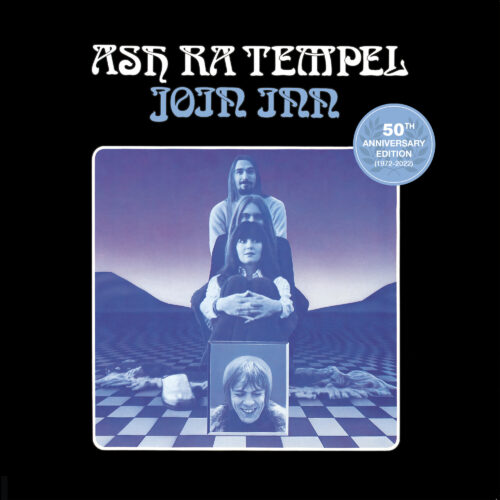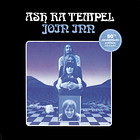After buying almost all of Pink Floyd’s sound equipment in London, Manuel Göttsching, Hartmut Enke and Klaus Schulze start recording their début »Ash Ra Tempel« in the summer of 1970. A promising start, considering how relatively small the project is at that point. Although Schulze had previously manned the drums on »Electronic Meditation« (1970) by Tangerine Dream, and Göttsching and Enke had followed projects like Bad Joe, Bluebirds or the Steeple Chase Blues Band, it was only as Ash Ra Tempel that the trio not only shaped Krautrock as such, especially with the fourth album »Join Inn«, released in 1973, and in this constellation, but in the process also laid the foundations of modern electronic music, to which the entire Berlin School but also giants like Kraftwerk would later refer. Created while recording Walter Wegmüller’s all-star album »Tarot« (1973), recorded in a nocturnal jam session without rehearsals, the album’s two long tracks turn out to be grandiose improvisations of two faces of the »Krautrock« concept. On the one side, »Freak’n’Roll«, undoubtedly one of the first heavy-psych songs in history, which shows Schulze in ultimate top form beating up his drums under a glistening rain of wah-wah from Göttsching’s guitars and using Enke’s sublime bass playing as a medium. The big bummer: Schulze turned his back on the drums afterwards until the end of his life in the spring of 2022. Even Julian Cope couldn’t think of anything but enthusiastic words for this work of art. The B-side is completely different. The reason why »Jenseits« is perhaps the most beautiful piece of music any of the members of the band has ever worked on is difficult to put into words. To be sure, Schulze’s congenially layered synth chords play a supporting role and, in a sense, anticipate the soundtrack to the Tarkovsky classic »Stalker« (1979) by Edward Artemiev. Götsching’s ultra-visceral guitar cascades and those legendary bass pulses from Enke’s Gibson also help this trip expand across stellar scales. On the road, however, it is Rosi Müller’s laconic lyricism that hovers over everything like a prophecy and defines the album’s magic moment in the end: »I thought we were in paradise. We were like children. We touch each other – and dance on the wet grass«. Timeless magic.
Ash Ra Tempel
Seven Up
MG.Art


